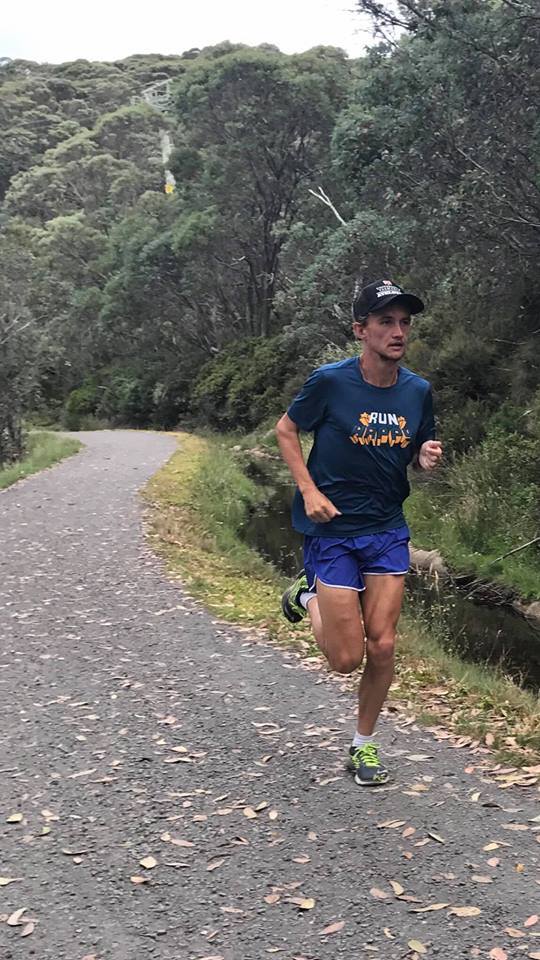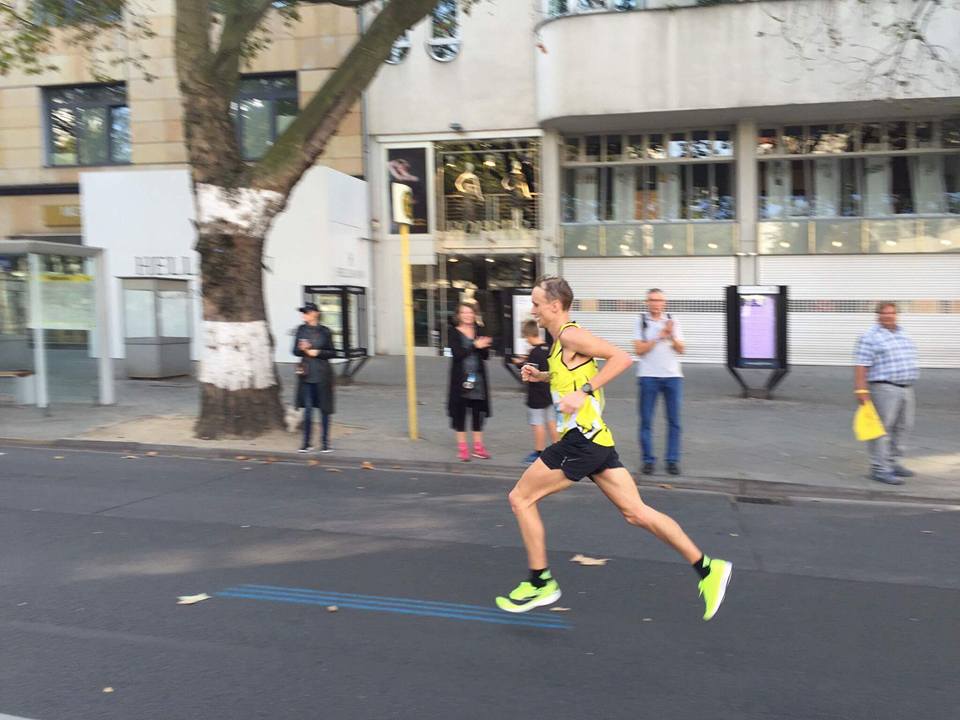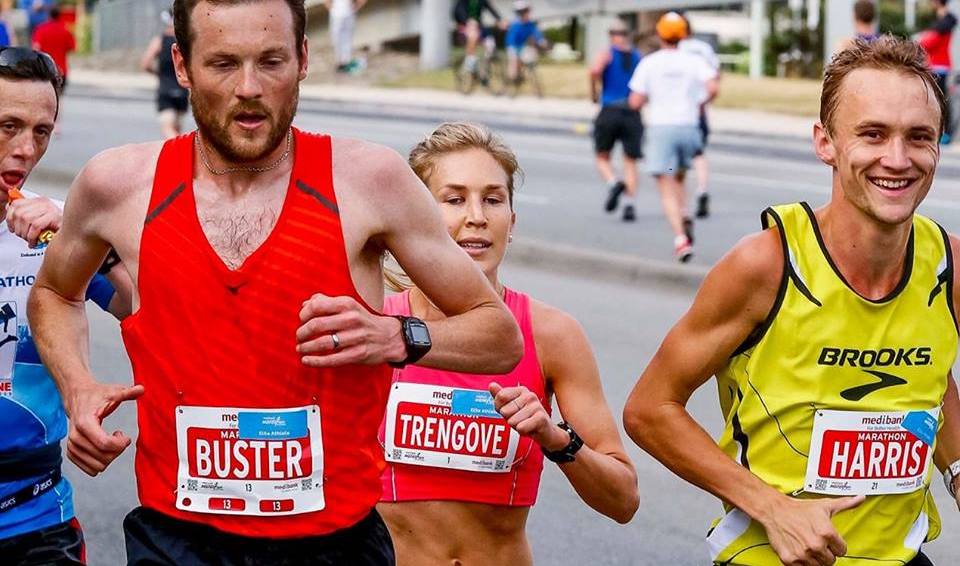Runners Tribe: 4 key workouts – Josh Harris
Event: Marathon – PB 2:17:08 Otsu (JPN) 05.03.2017
When building up to a Marathon I like to complete a significant amount of time at around Marathon pace, as I’ve struggled when I’ve primarily stuck to doing short, higher quality workouts. I include short, quality workouts in the early phases of my training programs and then add more marathon specific work as the race gets closer. In the 2-3 weeks leading up to the race, it is rare for me to do any running faster than Half Marathon pace. These are a few key sessions that are part of my program.

1. 90 minute tempo run (variation- 30’/4×5’/30′- 2′ jog between)
I think this is the most important session for me in the lead up to a Marathon. It teaches your body to be efficient at Marathon pace for a long period of time. I gradually build these up to the point where I can run 90 minutes or more at this pace, as it can be quite taxing on the body. Once you’re in good shape the session doesn’t take as much out of you as you may expect, but I still ensure I have a very easy day to follow.

A variation I do to mix it up comes from UK runner Steve Way, who does 30 minutes at Marathon pace, 4x5minute intervals at half marathon pace (each with a 2-minute jog between), and then into another 30 minutes where the aim is to run further than the first 30 minutes. This is also 90 minutes total, but the harder intervals in the middle test your legs over the final 30 minutes. Another benefit of this session is that I can practice my race day nutrition strategies at pace, as I can leave bottles around my uni loop.

2. Power Hour (any variation from 15′ – 60′ depending on event/needs)
 As the name suggests the Power Hour is an hour-long session, that alternates 1 minute at half marathon pace with 30-second floats between. I use this session when I’m preparing for a half, or doing slightly faster marathon training. You can run the reps at half marathon pace with a relaxed 30 seconds between. Personally, I think being constantly aware of where you’re up to and the changes of pace make this session psychologically easier than going out for an hour tempo run. Another benefit of this session is that it can be tailored to meet any event requirements. A 5-10km runner could do 15-30 minutes worth, with reps at 5-10km pace as an example.
As the name suggests the Power Hour is an hour-long session, that alternates 1 minute at half marathon pace with 30-second floats between. I use this session when I’m preparing for a half, or doing slightly faster marathon training. You can run the reps at half marathon pace with a relaxed 30 seconds between. Personally, I think being constantly aware of where you’re up to and the changes of pace make this session psychologically easier than going out for an hour tempo run. Another benefit of this session is that it can be tailored to meet any event requirements. A 5-10km runner could do 15-30 minutes worth, with reps at 5-10km pace as an example.
3. Long run
As a marathon runner, the long run is an essential part of the weekly program. I like to mix my long runs up in the build up to a race. I don’t just run easy every week, but I also don’t run hard every week. Time on legs is the most important thing early on, but as the race gets closer I’ll add a few variations. These are my 3 most common variations.
a) Easy run at 4:10– 4:35/km
Usually, 2hrs, building up to 2hrs 40
b) Fast finish long run
As I get closer to the race I might jog the first 90 minutes of a run and then pick the pace up to between 3:20-3:40/km for the last 10-15km.
c) Fast long run
Once or twice in a build up, I’ll do a 90minute- 2-hour run where I average a comfortably hard pace of 3:30-3:40/km (roughly 90% MP) from early on in the run.
4. 3x 3,2,1 minute w/ 1 min float between each rep
I’ll generally still be doing shorter sessions (4-10km total volume) fairly regularly until the final weeks before a marathon. This is probably my favourite session, and I usually get a really good indicator of my 10km form from it. It’s a continuous 26-minute workout that I first did at Falls Creek with Jeff Riseley and his group. I float fast between the reps when I’m fit, and I find whatever I average for the 26-minute session is about 4sec/km slower than what I could average for a 10km race. If I averaged 3:00/km, I would expect to run a 29:20 (2:56/km).
I like that this is a session that goes back up in interval distance after the 1-minute reps, as I think doing too many sessions where the interval length always decreases can make you a bit soft. Races don’t get easier as they progress, so you can’t get into the habit of always running shorter distances as the session progresses.

Hopefully, some of these were a bit different to the norm. If you are looking to incorporate any of these I would suggest that it is all about gradually progressing your workload to the point where you can manage high volume sessions. Start with a distance you are comfortable with and slowly increase as you adapt. As I said, I find them really beneficial for getting my body ready for the demands of the marathon.
End
Video Replay: Nike’s Breaking2 sub-two-hour marathon attempt




Comments are closed.